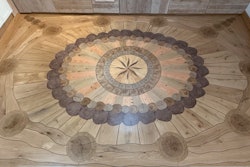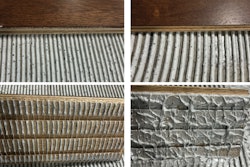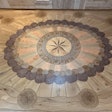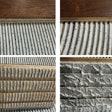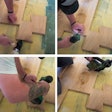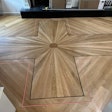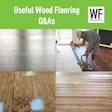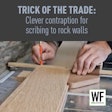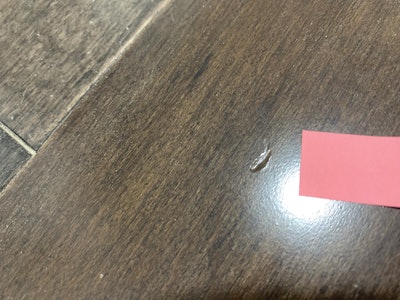
My customer asked if having a thicker veneer makes the floor “more durable.” Does it?
Tony Miraldi, director of technical services at Somerset, Ky.-based Somerset Hardwood Flooring, answers:
To a consumer, flooring durability is about how well their floor’s appearance holds up. Any wood floor finish will exhibit some abrasion wear, regardless of an engineered floor’s face hardness or wear layer thickness. Open concept homes with much natural lighting make wear more apparent, as do glossier finishes, color choice (darker floors tend to show more wear), grade of flooring (more vs. less character), etc.
Dents are another common complaint, but any wood floor will dent under sufficient PSI. Dents, like traffic abrasion, are initially seen in the finish, particularly in today’s factory-applied film finishes. Engineered veneers/lamellas are typically bonded to a softer core species (setting aside floors with composite cores). The Janka test chart is often posted at the point of sale but does not apply to engineered flooring with a face bonded to a softer core. Thicker faced engineered floors should resist indentation better than thinner faces, but since solid wood flooring can be indented, presenting face thickness of an engineered floor as more/less indentation-resistant is likely to disappoint.
Refinish-ability is one oft-cited feature/benefit of thicker faced engineered floors. However, to present an engineered floor as having “X” number of refinishes is a bit of a gamble. No manufacturer, distributor, retailer, or contractor can predict what condition a floor will be in when the homeowner calls to have their floor refinished or recoated. Even some solid hardwood floors are beyond refinishing, so to present an engineered floor as having a certain number of refinishes based on face thickness merely “kicks the can down the road.”















